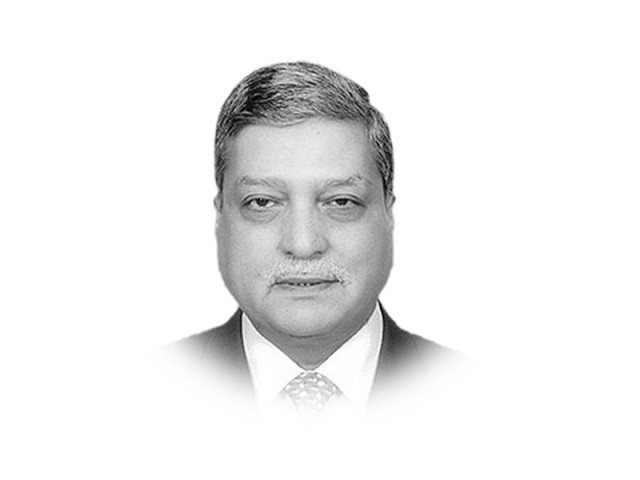Sindh’s faltering governance
As all governance structures crumble, the citizens are losing trust and faith in state institutions.

The writer is a former federal finance secretary and a former home secretary of Sindh
Deliberate challenges have been hurled at governance in Sindh, over the last three decades, from different segments of society. The 1980s saw the germination of militancy in the province. Short-sighted policies for short-term gains and tactics of counterbalancing various political and religious forces laid the foundation for social divide. In the process, the architects and patrons of these counter forces ended up creating monsters. This ultimately led to the criminalisation of politics and the politicisation of crime, both of which rest on the application of brute force, targeted killing and predatory shrewdness. According to an expert, when application of these powers has a legal sanction, it is called politics; when it is devoid of legal sanction, it is called crime. Ever growing financial outlays of businesses with rising criminalisation of politics gave rise to criminal gangs under political patronisation as well as the culture of protection money.
Recent history indicates that ethnic identity is increasingly becoming an important axis around which politics is revolving, in many developing as well as developed societies. Governance and service delivery turn too complicated when multiple competing ethnic and social groups are at odds over which group exerts primary control over the levers of political and economic power, according to another expert. Rapid transformation of Karachi’s demography, more so because of two back-to-back Afghan wars and migration from the north, set off social disorder. Continuing politico-ethnic-religious militancy and inter- and intra-factional conflicts over the last two decades further sharpened the social divide. It looks as if the society has been systematically criminalised, more so since late 2000.
Over 8,000 criminal cases were withdrawn involving thousands of persons. The provincial administration’s reports during court proceedings prima facie reflect that arrested offenders were paroled and bailed out, and criminals arrested for heinous offences were released under the cover of ‘political workers’. Meanwhile, the biggest challenge to the Police Command is to deliver in an environment where loyalty to ‘mentors’ takes precedence over the sense of duty and where the state’s interests are often, and with impunity, subjugated to individual gains. Targeted killing of police personnel has demoralised the force and today, no one is prepared to take the risk as they chose ‘mutual coexistence’.
Today, institutional cleavages are blocking access to all goods and services, which constitutes the principal challenge to governance in Sindh. Revival of ‘fiefdoms’ — no one can be posted to a district without the clearance of the local power centres and informal channels — is seriously threatening the fundamental public good, security of life and property. The governance suffers from two major flaws: Firstly, the good behaviour is not consistently rewarded and bad or unlawful behaviour is not consistently checked or punished. Rather, there is a strong feeling that it is bad or non-compliant behaviour that ensures rewards and success. Secondly, the nature of power exercised has become too personalised. Coalition politics, shifting of powers from the centre to the provinces and an ever growing money-muscle-political power nexus has eroded the authority and effectiveness of a frail public administration. The integrity and professionalism of civil servants is being questioned. As all governance structures crumble, the citizens are losing trust and faith in state institutions. And this is true for both urban and rural areas.
Published in The Express Tribune, October 26th, 2013.
Like Opinion & Editorial on Facebook, follow @ETOpEd on Twitter to receive all updates on all our daily pieces.













COMMENTS
Comments are moderated and generally will be posted if they are on-topic and not abusive.
For more information, please see our Comments FAQ